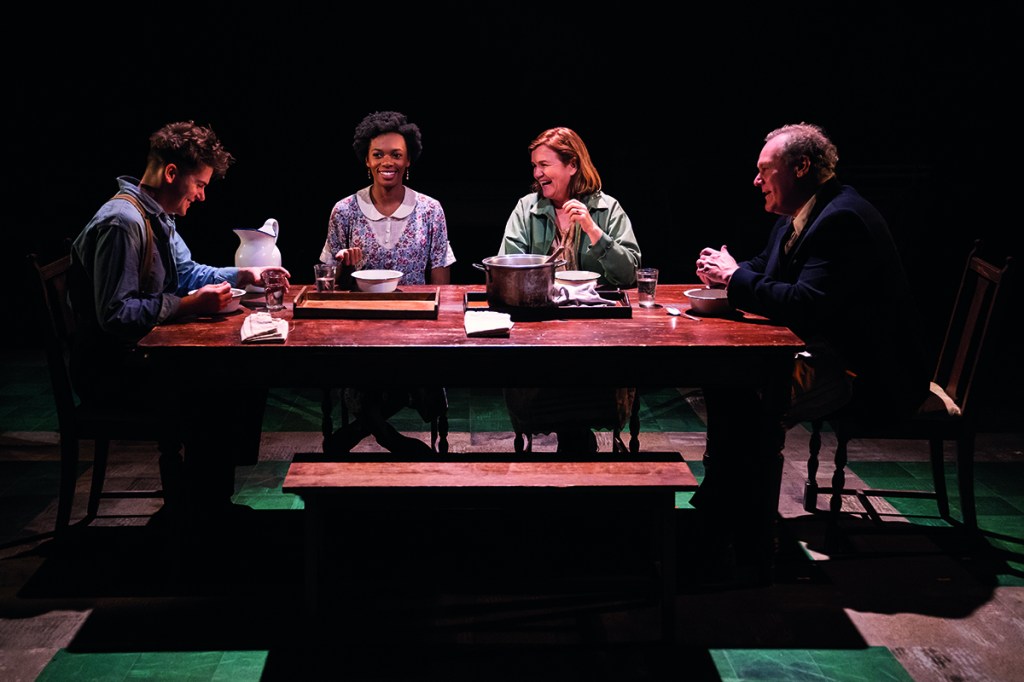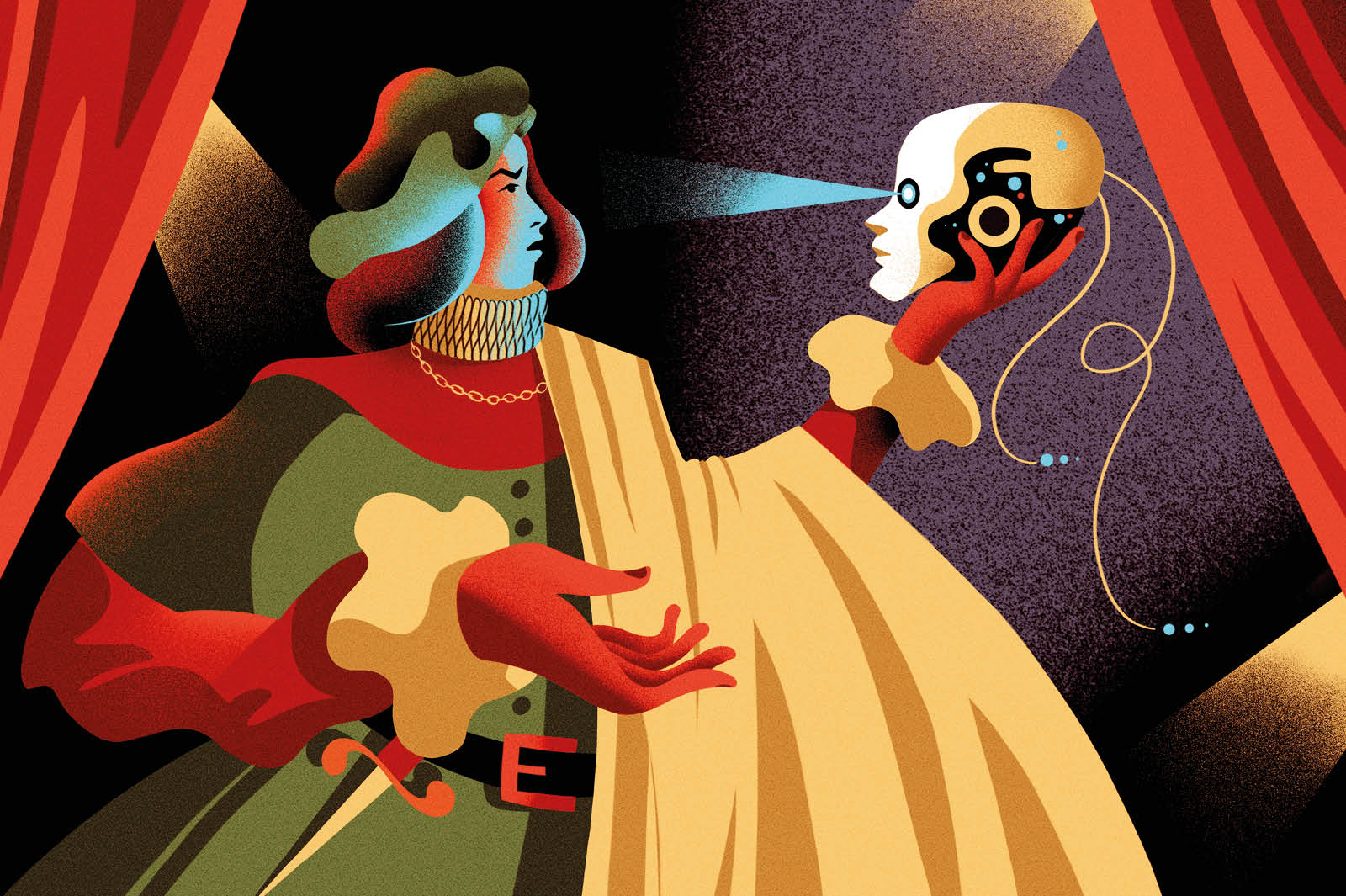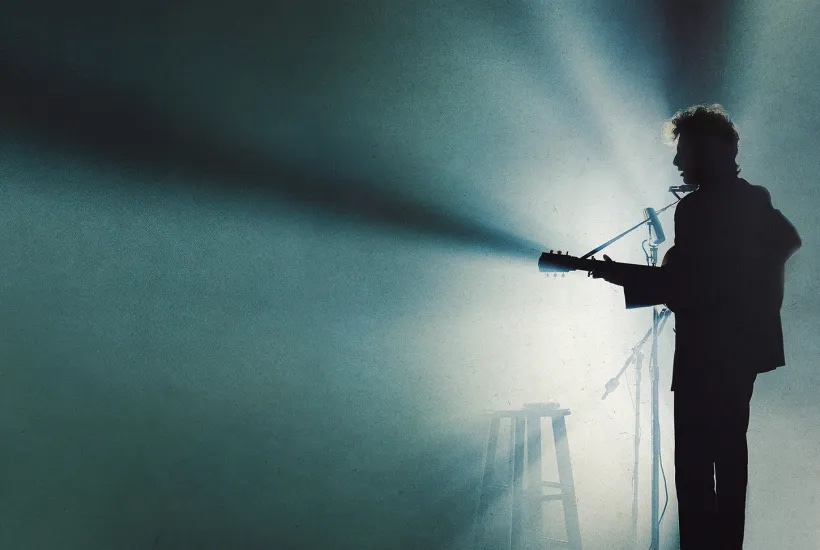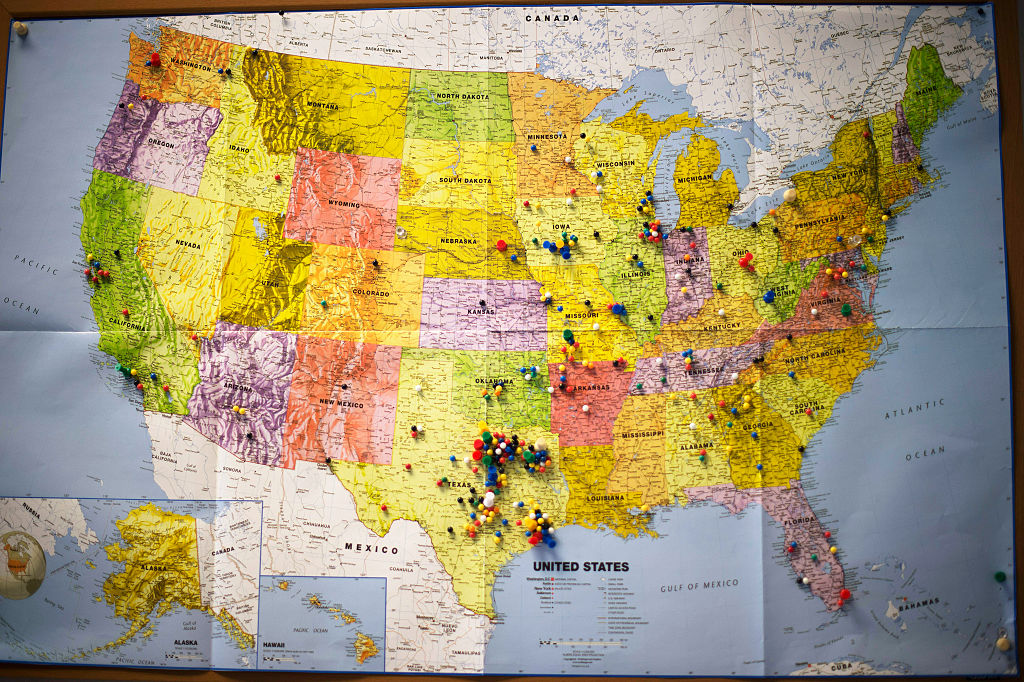The Venerable Bede writes of a pagan priest in seventh-century England who, sizing up the meager life of man, compares it to a sparrow flying through a well-warmed dining hall on a stormy winter night. The priest admits to knowing nothing about the cold darkness before or after the brief passage. He can only speak to the time the bird spends in the light.
In Girl from the North Country (open run at the Belasco Theatre), the season is the Great Depression in 1933, and the dining hall is a flophouse in Duluth, Minnesota, where down-and-outers blow through like so many birds on the wind. The innkeeper, Nick Laine (Jay O. Sanders), is stretched so thin he can barely keep the lights on, much less look after his mentally ill wife (Mare Winningham), find a job for his deadbeat son (Colin Bates) or arrange a marriage for his pregnant daughter (Kimber Elayne Sprawl). The other principals include a doctor (Robert Joy), a young widow (Jeannette Bayardelle), an old widower (Tom Nelis), an ex-boxer (Austin Scott), a Bible salesman (Matt McGrath), and a bankrupt businessman (Marc Kudisch) with his wife (Luba Mason) and son (Todd Almond), who is a manchild, in tow.
Oh, and North Country is also a jukebox musical featuring no fewer than twenty-two Bob Dylan songs. (The bard hails from Duluth.) The result, astonishingly, makes for marvelous theater — a show that, despite its ranginess, retains all the humanity and simplicity of Bede’s sparrow. It’s a real testament to the powers of Conor McPherson (writer and director) and Simon Hale (orchestrator, arranger and musical supervisor) that a production expansive enough to accommodate an ensemble cast manages such restraint and subtlety. But it’s also revealing that Dylan, who remains something of a folk hero in the popular imagination, doesn’t wither under Broadway’s garish lights. After all, Dylan’s music has long thrived on the conflict between popular culture and his own cultivated folk persona. Take “Like a Rolling Stone” (1965), which is first and foremost an evisceration of the wannabe hippies and fangirl “Miss Lonelys” that filled Dylan’s audiences in the sixties — the types who chase “jugglers” and “clowns” and “let other people get your kicks for you.” The song wouldn’t work if Dylan didn’t think of himself as a clown too.
McPherson is an Irish playwright, and North Country premiered across the pond at London’s Old Vic back in July 2017, just one month after Dylan delivered his belated Nobel Lecture for the prize in literature. I mention this because this because the musical is so artfully constructed yet refreshingly free from pretension that it almost parrots Dylan’s claim, in said lecture, that “when I first received this Nobel Prize for Literature, I got to wondering exactly how my songs related to literature.” (I take this as a slight against the Prize committee first and literature second.) McPherson said that Dylan’s office suggested the idea of a musical, sent him boxes of all his records to choose from and then left him alone. This claim is borne out by the selection of numbers, many of which will only be recognizable to the hardcore Dylan fan familiar with the way, way back catalogue.
North Country doesn’t attempt to weave these songs into the story directly, and the story is better for it. Instead, McPherson and Hale have savvily deployed them as interludes to mirror and accentuate the characters’ voices and the contours of the various plotlines. For example, a few minutes before intermission, Nick’s not-all-there wife kicks off a soulful rendition of “Like a Rolling Stone” before passing the tune to the inn’s tenants, who join in turn. The implication — that these are weary travelers — is straightforward enough. The action heads elsewhere for a few minutes before “Rolling Stone” is reprised for one last chorus, except this time, the spotlight is on the innkeeper Nick: as the curtain falls for intermission, a central theme of the show discloses itself, namely that of all the wayward souls under his roof Nick is the only one rooted to the spot. In other instances, the music serves to adjust our sense of dramatic time and space, as when a multi-song medley precedes a Thanksgiving feast in the second act. We’re lulled into a tryptophanic reverie, so when Marc Kudisch as the businessman starts to get handsy with some of the female tenants, we hardly realize that his half-drunk patter will evolve into the virtuosic monologue that it does, or that it will lead the plot into such a harrowing place.
I could go on about the thoughtful direction, the remarkable acting across the cast, the quality of the music and much else besides. But the total effect is beyond words. North Country is a delight as pure as birdsong.
This article was originally published in The Spectator’s January 2022 World edition.

























